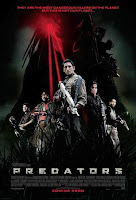The venue formally known as Nissan Pavillion will now be known as
Jiffy Lube Live. I wonder, did Nissan pull out, or did they get out bid by Jiffy Lube? Or, was the offer by Jiffy Lube a standing offer, and the economy pushed them to accept the offer? I also find it interesting that just the name alone makes the venue seem cheap, even with out going there.
image from: http://www.jiffylube.com/
The venue is still the same, it just has different logos advertisements. But why is it that we think Nissan is OK, but Jiffy Lube isn’t? How about the Snagajob.com Pavilion just outside of Ricmond? I don’t think I would even visit the website, Snagajob.com in the first place, let alone go to their Pavilion. OK, maybe if I had front row tickets to Pearl Jam…
But then again, I wonder about other business sponsorships that are taken seriously, like Michelin Stars. These are ratings given by the tire manufacturer, rating restaurants all over the globe. Apparently, if you have just one star, it means you’re a very good restaurant, and you can get up to three, and it’s taken very seriously. But, why or how is a tire company any kind of expert in the culinary world? (Maybe
this has something to do with it?)
Companies also try to pass off an inferior product, and use its good name to do so. Toyota did this, I believe, with their Camry line of cars (if not their entire line). About 2 years ago, I was in the market for a car, and test drove the Camry, partly because I knew of Camry, and thought they were very good cars. When I test drove the ‘08 model however, I thought it was a piece of junk. It was underpowered, small, and felt cheap – like it was made of plastic. I ended up buying a Honda Accord instead. It has since turned out that my feelings were justified, with the recent gas pedal issues Toyota has been having. I also love my Accord.
The point is that brand names have value for a company, and companies use that value in different ways. Nissan meant quality, and it transferred to the venue (or vice versa); while Jiffy Lube doesn’t, or hasn’t yet. Michelin has worked very hard to earn the respect it garners from their Michelin Guides (interestingly because of how difficult it is to earn even one star, at least in part). Lastly, it seems Toyota relied too heavily on their good name, and now they’re paying for it.


